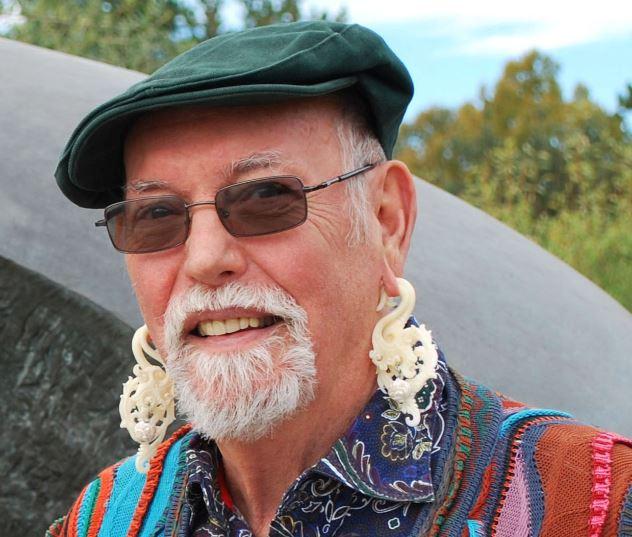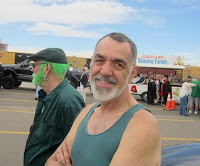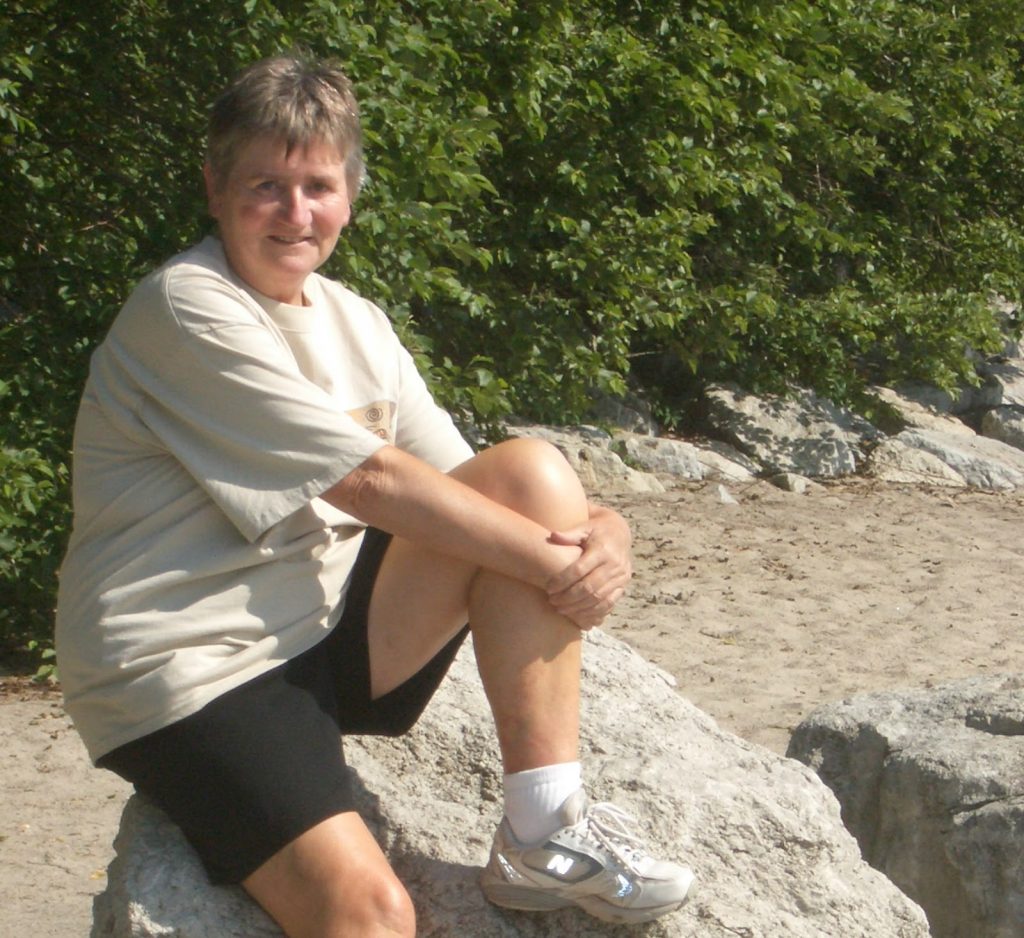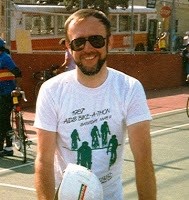My first memory of a memorial was when I was four or five. In rural Kansas there would be a fenced area with trees on the side if the road surrounded by wheat fields. Sometimes headstones could be seen. The one I remember was overgrown with tall grass and weeds when we arrived on Memorial Day.
It was the custom for families of those buried there to come, clean away the weeds, cut the grass and place flowers from their flower gardens on the graves of their relatives.
It was a beautiful day and I was unhappy to have to stay in the car while my parents and older sister were outside working on making the graves nice and neat. The reason I had to stay in the car other than insuring that I stayed out of the way was that I had asthma and my parents tried to avoid anything that might cause an attack. I’m sure that included an excuse to prevent me from running around like a normal boy of my age. I felt fine.
I looked out and noticed a child’s grave next to the car. It was a much smaller area covered with tall grasses and weeds. Since no one was there to properly groom the area I felt sorry that no one cared and wanted to do something about this sad situation.
I lowered the car window and got my sister’s attention, explained my concern, and convinced her to trim the grass. She got a sickle and was busy swinging it back and forth cutting the grass when I managed to open the car door and got out to watch. I got too close and on a back swing the sickle caught the skin along my eyebrows and tore it to about the center of my scalp.
Dr. Whalan in our little town had reattached my thumb when my father cut it off when I was two. I had stuck my hand out to touch the pretty blade he was potting in the mowing machine. Dr. Whalan later treated me when I was bitten by a spider and was in a coma for days. Now after I got scalped he gently worked the scalp and forehead skin back in place and told my parents that it would heal with less scaring without stitches. He was very skillful in that regard and over the years treated numerous face wounds that would have left me with some horrible scars. Most of the scars I have hardly show for which I can thank the country doctor.
After that first experience having to do with Memorials and Memorial Days I recall many: the poppies representing Flanders’ Field, many funerals, watching the laying of wreaths, standing by friends as they watched their loved ones being placed in a crypt or in the ground, and more recently when funerals have become celebrations of the lives of our friends.
The following is what I read at Bobby Gates Memorial celebration.
After I retired I found myself with no particular activities, no friends, as most were from work or lived far away, and I didn’t even have a plan or a direction. I attended the PrideFest and was given a card about the Prime Timers luncheon. I went and began my first association with a gay community. Bobby was the president of Prime Timers. Among the many things that he sponsored was the “Coffee Tyme” at Panera’s. Soon we became friends and when Bobby found out that I was almost totally un-knowledgeable in practically everything, he became my mentor. Of course at the time I wasn’t that aware, but looking back practically everything I found out, every activity I got involved in and most everyone I met had a connection to Bobby. I think he had been that way with many, many others. He organized activities, coordinated events and invited participation and friendship, thoughtfully sent birthday cards, etc., etc.
For me he introduced me to many restaurants, always surprised that I had never been to any of them. He introduced me to Front Rangers. He introduced me to movies. He was one in the coffee group that introduced me to the Denver Church and Jim Chandler. And he introduced me to my partner, Merlyn. Often he’d call me about an activity and asked if I needed a ride. I can’t imagine how my life would have been without Bobby.
I honor one of the most compassionate, thoughtful, and generous friends anyone could ever have. I feel that I have truly been blessed by his friendship, his kindness, his nurturing, and the love that he bestowed on everyone.
Even though Bobby didn’t have financial wealth, a couple of weeks ago Bobby’s son Marc and I were talking about how rich Bobby was in friendships, activities, experiences, and attitude.
I expect that we’ll meet again and that our friendship will continue. In the meantime I will continue to be thankful for the many ways he touched my life and continues to be an inspiration and an influence
I give thanks for Bobby
About the Author
I go by the drag name, Queen Anne Tique. My real name is Michael King. I am a gay activist who finally came out of the closet at age 70. I live with my lover, Merlyn, in downtown Denver, Colorado. I was married twice, have 3 daughters, 5 grandchildren and a great grandson. Besides volunteering at the GLBT Center and doing the SAGE activities,” Telling your Story”,” Men’s Coffee” and the “Open Art Studio”. I am active in Prime Timers and Front Rangers. I now get to do many of the activities that I had hoped to do when I retired; traveling, writing, painting, doing sculpture, cooking and drag.









